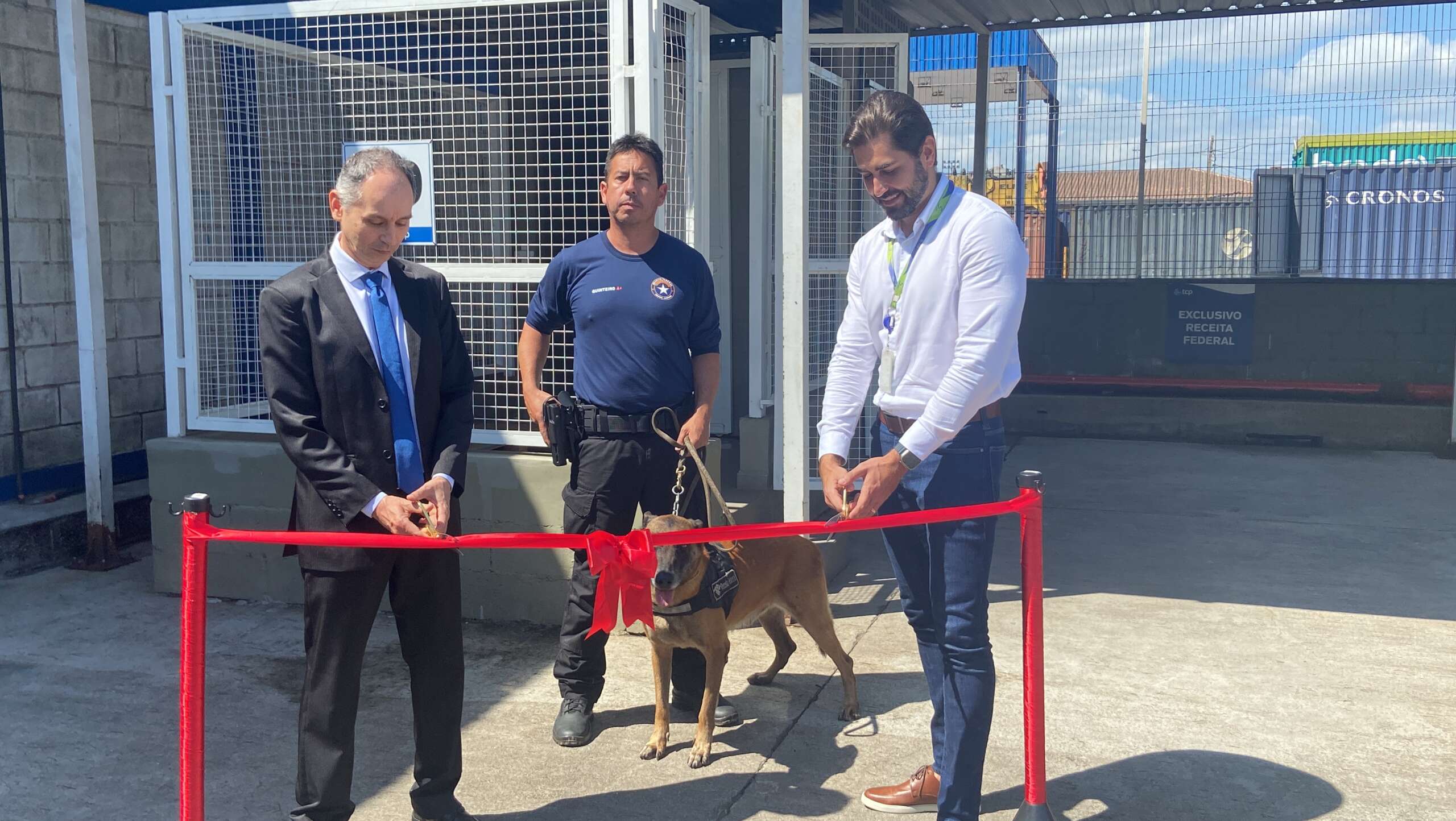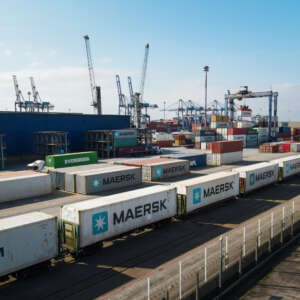The space will be used to house the dogs after inspections in the terminal
On Thursday (21), TCP (the company that manages the Paranaguá Container Terminal) inaugurated a kennel inside the terminal facilities. With a 9 m² solarium area and enclosed kennel, the space was accordingly planned to be used by sniffer dogs from the Brazilian Federal Revenue Service (RFB) after cargo inspections.
The measure came about after Ordinance No. 143/2022 was implemented, which deals with the rules and procedures necessary for bonded areas such as the Port of Paranaguá. Among the measures is the construction of a kennel for the animals. According to TCP’s institutional manager Allan Chiang, “the terminal actively cooperates with the work carried out by the Federal Revenue Service and other authorities. This environment will benefit the inspection teams and us, as we will be able to increase the number of inspections with the K9 team, bringing even more security to the activities carried out at the terminal”.
The most benefited one by the measure is Enzo, a 9-year-old Belgian Malinois Shepherd. According to Alessandro Quinteiro, an RFB analyst, the dog lives at the 9th base of the Federal Revenue Service, in Navegantes (SC), and meets the demands of Paraná and Santa Catarina. “Every time we visit the TCP, it takes us two hours to get there. With the kennel in place, the team will be more comfortable, as Enzo will no longer have to return home on the same day. Another advantage is that we’ll be able to stay in the city longer, which will increase the frequency of inspections at the terminal,” Quinteiro said. According to the RFB, a second sniffer dog is expected by September.
Security at TCP
In addition to the inspections carried out on the containers, the terminal has around 400 monitoring cameras with 24-hour surveillance, scanners for checking cargo, 56 armed guards and an alarm system in case of break-ins. Entrances to the terminal are only made after internal authorization. All vehicles, people, packages and cargo are carefully examined, including pedestrians who pass through a metal detector.



